Lisa Niver's Blog: We Said Go Travel, page 327
March 5, 2015
“Brindisi,” Italy: Blood and Sacrifice Part 3
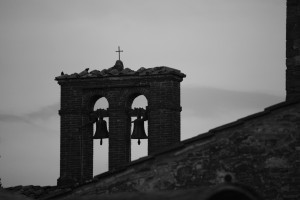 Italy: Blood and Sacrifice Part 3 (Read Part I)
Italy: Blood and Sacrifice Part 3 (Read Part I)
How many of you have asked yourself if you could go back and do it all over again it would be different, it would be better. How could you be so dumb and make those mistakes? You would have achieved your life long dream, your happiness.
Unfortunately, or maybe fortunately things happen the way they are supposed to happen and to question it is useless no matter how hard you try. More often than not in the moment you fail to realize what is truly going on and therefore take for granted the importance of that moment and as a consequence do not cease the moment for what it’s meant to be. That is the balance of life.
Brindisi Italy, 1993:
It had been a year since I left southern California for Europe. I landed in Frankfurt with too many bags and made my way to Munich, where I would see and visit a friend I grew up with. After a month in Munich with her father’s help I found a job at a ski resort in an alpine village called Garmisch-Partenkirchen in the Bavarian Alps, on the German side of the border with Austria. The job was affiliated with the United States military, although it was a recreational facility and I was a civilian. It was here that I would meet the people who would change my life and take me down a path that would reverberate beyond borders and future generations.
One of those people was a nineteen-year-old American named Nicolas. His father was a Captain in the US Navy, stationed in Gaeta, roughly sixty miles north of Naples and his mother was an American diplomat living in Rome. It was because of Nicolas that I found myself here in Brindisi on this mild February afternoon watching his friend Salvatore play a game of calciotto.
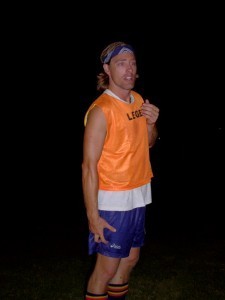 In the United States basketball courts are a dime a dozen. Pickup games are in every city and town. In Italy the pickup games are soccer, or football as they say, or better yet calcio. Calcio is the lifeblood of Italian sport and rules all else, even to the point of life and death. Before Italians learn calcio they learn calciotto, which is a form of calcio, however it is played on a much smaller field with five to seven players on a team. The goal nets are also much smaller. In a way it’s like American indoor football, where the fields are smaller and the goalposts are narrower. On this day I was with Nicolas watching Salvatore play a game of calciotto with his friends. Nicolas and Salvatore had known each other since they were four years old, having gone to school together at daycare and then elementary school here in Brindisi. Nicolas spent a good part of his youth in Brindisi while his father worked his way up the ranks of the navy.
In the United States basketball courts are a dime a dozen. Pickup games are in every city and town. In Italy the pickup games are soccer, or football as they say, or better yet calcio. Calcio is the lifeblood of Italian sport and rules all else, even to the point of life and death. Before Italians learn calcio they learn calciotto, which is a form of calcio, however it is played on a much smaller field with five to seven players on a team. The goal nets are also much smaller. In a way it’s like American indoor football, where the fields are smaller and the goalposts are narrower. On this day I was with Nicolas watching Salvatore play a game of calciotto with his friends. Nicolas and Salvatore had known each other since they were four years old, having gone to school together at daycare and then elementary school here in Brindisi. Nicolas spent a good part of his youth in Brindisi while his father worked his way up the ranks of the navy.
Two weeks ago 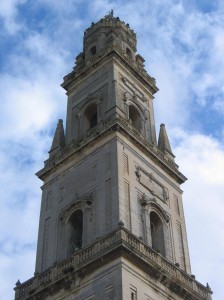 Nicolas and I left Germany under hurried and anxious circumstances. What we knew was that one of our friends was in jail somewhere in Germany and the other nine were waiting for us in Prague.
Nicolas and I left Germany under hurried and anxious circumstances. What we knew was that one of our friends was in jail somewhere in Germany and the other nine were waiting for us in Prague.
We also knew, much like Romeo with his beloved Verona, that we were banned for life from returning to Garmisch. With Zebra in jail Nicolas and I became the backbone, the two the others looked to for guidance, however the two of us were in Italy.
On that fateful day two weeks ago we were all given six hours to pack up our lives and leave, or face arrest and prosecution. We were made to sign papers of our banishment and given an explanation that to this day, in some regards, remains a mystery.
We were all American civilians, expats living in Germany working for the American military. We had no real home and nowhere to go. Nicolas and I were roommates in Garmisch and I already knew his family, so he invited me to Italy, but I was the only one. The plan was to go to Italy for a few weeks while things cooled down in Germany. From there we would meet the others in Prague to hash out a plan.
Before we could do that however we first needed to get back to Garmisch to pick up something extremely valuable. That was the hitch. It was possible, but risky. What we hadn’t counted on was that his father with his higher up military connections would look deeper into our affair. We weren’t going anywhere until he found out what he wanted to know.
Read all the articles in this series: Blood and Sacrifice
The post “Brindisi,” Italy: Blood and Sacrifice Part 3 appeared first on We Said Go Travel.
March 4, 2015
The Cost of Sanity: A Bottle of Sprite in Honduras
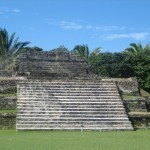
When our cruise ship docked at Roatan—a small island off the coast of Honduras—I naively assumed my five coworkers and I were about to put on our explorer hats, don our khakis proudly, and head out on an adventure full of slithering, poisonous snakes, hikes up serpentine trails to ancient ruins, and run-ins with shrewd and slinky vendors who drove a hard bargain. Instead, they hopped in a cab and I begrudgingly joined. For a few bucks, our cab driver took us to the birth of a shoddy, war-torn, hungry street and dropped us off with our “tour guide”—his seemingly-mute daughter, Gabriela. She quietly led the way down the road, ignoring with each of her flip-flopping steps that this can’t have been what Norwegian Cruise Lines had in mind. Chunks of powdery pavement crumpled beneath our feet, windows seemed armed and at the ready for trespassers, and wooden boards that presumably once kept out the vermin of the city were now littering the street like some exhausted, overworked interior decorator had called it quits and stalked off in a violent, explosive rage.
A quarter of a mile or so down the road, the likes of the ghetto unchanging and still not a peep out of Gabriela, she stopped and pointed at our obvious, almost glaringly-offensive and out-of-place destination: a three-walled tiki bar. The counters were lined with grass skirts and margarita mugs, though not a tourist was in sight. With the sun still well in the East, the 6 of us hunkered down at the bar, one by one. Gabriela sat by herself at a corner table, barely making eye contact with the paper toucans decorating the walls.
It had to be some sort of new-age torture, spending your limited hours in Honduras confined to a bamboo stool. To top things off, the six of us had settled down with six margaritas carefully concocted by some runaway ex-pat from St. Louis, Missouri. St. Louis. We were a bunch of kids from Iowa sitting at a bar in exotic, toasty warm, eye-opening Honduras talking to a pale, lonely Midwestern boy from Missouri. We were pathetic. Maybe it was the sugar high from my excuse for a margarita, but I had had enough. I wasn’t the travelling solo type until that very moment.
So, I gobbled up the remains of the jam at the bottom of my margarita, popped up off my fake-bamboo prison, and made a bee-line for the only worthwhile conversation partner I might be able to find that day: Gabriela. She couldn’t’ve been more than 12 years old, 80 pounds sopping wet, and seemed like she had a handful of older, more glamorous siblings whose shadows she slept in at night. It’s a feeling I understood, in both English and Spanish. I walked up to her a little nervous myself, but it couldn’t be worse than what I had left 10 feet behind.
“…Hola, Gabriela. Me llamo Jackie. Uhh…te gustaría…una bebida?”
I saw her hide a slight smile, obviously amused by my subpar Spanish skills. But it jetted away like someone might catch her in trouble, and she just shook her head.
“Aww, c’mon. Te gustaría…una coca-cola?”
Another head shake.
“Uva?”
Nope.
“…Anaranjada? Wait. Crap! Naranja?”
A little smile, but nope, nope.
“…Sprite?”
And finally I saw a glimmer. I latched onto it like it was a golden ticket out of hell, which it was, in a way. “Okay! Una Sprite por mi amiga nueva!” and never gave her a chance to stop me. I saw another smile, this time accompanied by a small giggle. I was always afraid to speak foreign languages to my classmates and professors even after years of study, but she gave making an ass out of myself purpose, as if my neurons were firing slowly for some grander reason I didn’t understand.
I nabbed a fresh bottle from the bar and set it down in front of her. At that moment, it felt like a band of Care Bears could not have made any child happier. Though I was only capable of asking her very simple questions, like what music she liked or what she was studying in school, it was still the best conversation I had had all week. After her last grateful drink, she looked back at my three-margarita-deep companions, looked at me, sized me up momentarily, and whispered in a hopeful, innocent-but-scheming air,
“Quieres ir de compras? Las tiendas están cerca de aquí.”
I couldn’t help but get excited. “Claro, Gabriela. Me encantaría.” And we walked out the door, two bandits on the loose, running away from our shadows.
Thank you for reading and commenting. Please enter the Inspiration Travel Writing competition and tell your story.
The post The Cost of Sanity: A Bottle of Sprite in Honduras appeared first on We Said Go Travel.
March 3, 2015
Hope in the Dust in Uganda
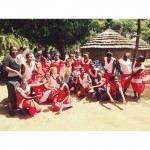
Orange Dust. That is all I could see through those dirt streaked windows of the small truck five of us were stuffed in. The thick, orange dust that hung over that anonymous African highway dimmed the light of the setting sun. Our only company was the dark shadows of bodies and trucks moving down that endless road. The sweat droplets hung on my forehead as I stared blankly forward into that orange dust. The faces of the people I met past through my mind, their very existence corrupted everything I believed about this world. Children giggling and smiling as they played soccer with empty stomachs. Mothers silently mourning the war that destroyed their lives as they kissed their smiling babies. Their stories echoed through the very pit of my soul.
I distinctly remember one mother, Chol. I spoke to her for only 15 minutes. When she left I was not the same. My interpreter and I sat in plastic chairs waiting for the next mother to be interviewed. We sat in a dark church made of dust and sticks in the middle of the refugee camp on a humid day. The first thing I remember when Chol sat down was her 7-month-old baby. Chol’s baby must have been one of the happiest babies I’ve ever seen. He was smiling, laughing, and bouncing in his mother’s lap as she gave him kisses all over his chubby face. When I looked at Chol, as she kissed her happy child’s face, she had this blank expression. As we progressed through the interview we came to the section about the war. She still had all her attention on her smiling baby. She had these tears sitting on the edge of her eyes as she bounced her little boy in that hot, dark church. After writing a note I looked up to see two streams of tears cutting through the dust on her cheeks. Not a sound besides the happy chatter of her baby and her kisses on his cheeks. I set my pen down and said she was free to go. She got up and was gone.
As we began our first day in the camp we were led through the settlements by the Dinka leaders to witness their living conditions. There was this thin, sickly looking tree providing shelter to an elderly man resting at its trunk. Looking at him you knew he was dying of starvation. You could see the cartilage between his bones and every tarsal in his fingers. He was sitting under that fragile tree, withering away, his cloths stained in orange. When I came to him I knelt down to shake his hand and say hello. He took my hand in a firm grasp, looked me right in the eyes and smiled. He had the most beautiful eyes. He had these light brown eyes with dark stripes cutting down to his pupil as the light blue color of cataracts made its slow descend. As we stayed to speak with him I couldn’t understand how or why he smiled at me while he sat there dying in the dust. In the mist of dying he had joy.
I was working with a small NGO, ChildVoice, to interview young mothers in the South Sudanese refugee camp in Adjumani, Uganda. We were there to interview these women about their experiences in the war and services they needed to improve their living conditions. The strangeness of this space was so unsettling, as the silence of their suffering hung in the humid air. We sat together with these women asking questions about war and disease in homes made of dust as children played and laughed outside. Every woman we interviewed stated that she and her children were sick, and had limited food and shelter. The sole purpose of being there was to listen to the voices of these women, and bring their voices to ChildVoice. The hope was to develop sustainable assistance to help them rebuild their community.
I wanted to encounter social justice by physically moving out to meet the people suffering from diseases and corruption. That was why I was sitting in that cramped truck on that dusty road. To find hope in forlorn regions is remarkable and countercultural to all the fear we are told to believe. I left northern Uganda with a different worldview that did not match the view I was told to believe. I was introduced to mass starvation, displacement by war, war trauma, and terrorism during this trip. However, I experienced the power of hope that exists in all this suffering. The chaos of war and violence is silently combated by the hope these people have for their futures and their children.
Thank you for reading and commenting. Please enter the Inspiration Travel Writing competition and tell your story.
The post Hope in the Dust in Uganda appeared first on We Said Go Travel.
The Moorings Restaurant in Kenya
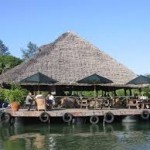
I had made up my mind not to visit eateries along the coastal region because of the lousy service provided in some of them. I assumed they were all the same until I visited The Moorings Restaurant at a friend’s request, and was bowled over by the level of service and quality of food. We arrived at 11.oo am, an hour after the restaurant had opened for business since it only serves lunch and dinner. There was a charming young lady at the entrance who welcomed us into the restaurant and asked us to feel at home.
The waiters on duty are usually smartly dressed in their black trousers and white shirts with black bow ties and will politely greet the visitors, show them to their tables and present the menu of the day. I asked the waiter who came around our table about a proper combination of dishes on the elaborate a la carte menu and he was very helpful in providing the information that enabled us to balance our lunch. There are several courses on the menu and various options to choose from in each course and one will definitely need some assistance in making the right choice.
The first course offers several juices, fresh fruits and fruit cocktails. The second course has a number of soups which are either cream or clear in nature. On the third course you will find entrees or stews and the options here are varied. There is braised beef, chicken casserole, sauted kidneys and many other dishes. The fourth course consists of various types of fish cooked in different styles. There is grilled fish of the red snapper or nile perch and sea fish such as crab, lobster and prawns prepared to the visitors liking. On the fifth course there are grills and roasts such as fillet steak, rump steak and roast pork. The sixth course offers vegetables and potatoes which are fried, steamed, sauted or simply boiled in such a way that even vegetarians will be attracted to select a number of items from it. Then there is the seventh and final course which has lots of sweets such as ice-cream, milk pudding, fruit salad, custard sauce and cream caramel. A dessert of all kinds of fresh fruits and coffee prepared to the customer’s choice is the last item on the course.
I found it a bit tedious making the right choice from the menu but the waiter told me that one does not necessarily have to choose from every course. “You simply select what you feel will satisfy you from at least three of the courses”, said the kind waiter. I made my choice from five courses and after the order was taken, waited for half an hour before the freshly cooked cream of vegetable soup was served with well-garnished bread rolls as an accompaniment. While I waited for it, I was given a pamphlet about other services provided by the restaurant such as the dhow that takes visitors for excursions in the vicinity of the restaurant. They also provide information on services from other establishments along the coastal region.
The Moorings restaurant has an open arrangement and as you sit at table enjoying your meal, you feel the cool breeze from the ocean and the sweet aroma from the delectable dishes being prepared in the nearby kitchen. The waiters stand next to their stations and keep an eye on the customer, ready to provide any information that may be required. There is a small bar by the entrance where alcoholic and non-alcoholic drinks are served and one is always allowed to order a drink and take it with his meal.
The service of the main dish takes quite a bit of time but the waiter clearly explained that the stuff ordered has to thaw out before it is cooked and so patience is needed if one has to get satisfactory service from the restaurant. The dish comes in sizzling hot and so attractive that you cannot help salivating. After the dish you are allowed to saunter around and admire the young fish in the ocean since this is a floating restaurant, before coming back for a dessert of either a cup of cappuccino or a variety of fresh fruits to end your perfectly fulfilling lunch. You leave The Moorings restaurant smiling and with the knowledge that it is indeed value for your money.
Thank you for reading and commenting. Please enter the Inspiration Travel Writing competition and tell your story.
The post The Moorings Restaurant in Kenya appeared first on We Said Go Travel.
March 2, 2015
Glacier National Park

The mountains stand as majestic sentinels over the land, and the mountain goats are everyday yard pets. Many Glacier Valley is filled with a series of deep, rich glacial lakes, and on one stands a giant brown hotel. Many Glacier Hotel, built in 1914, sits at the base of Mount Allen, hugging the shores of Swiftcurrent Lake, and faces the giant beasts of snow-tipped mountains that fill the Many Glacier Valley. Young people flock to the hotel to work for the summer from all across the globe on the hunt for something new.
I was one such wanderer. I had gone to waitress at Glacier National Park with nothing in mind except the promise of playing outside and meeting new friends and finding adventure. So on the 19th of July when my friend, Adrienne, told me that two of our other friends, Tim and Ellen, had the next day off and wanted to climb Mount Allen, one of the most massive mountains in the park, I immediately answered that we were going.
It was an early morning and a long, tedious hike with many uphill miles, but when I finally stepped onto the rounded peak I was hit by the magnitude of the beauty around me. Tim and Ellen stood side-by-side, silently absorbing their victory, and I stood beside them and tried to inhale it all. The mountains surrounded us, brown and red and streaked with white, but we towered over them all, and they dipped and rose beneath us like humble servants.
“It’s so beautiful,” I said. “Don’t you just want to rub it all over you like sunscreen?” Everyone nodded consent.
We took the mandatory victory pictures, then dropped our packs onto the rocks and snuggled down, trying to find those smooth places that would let us rest. We napped in the sun and shared a Butterfinger and tried to see how far we could stretch our Swedish fish. We idled in the sun for probably an hour before we decided we’d better leave.
“Just put your hand on those rocks, there,” Tim said. We were descending. I maneuvered my right foot
down until my heel caught a slight edge on the rock beneath me, enough to put a little weight on. I then placed my
left hand and weight on the two boulders that Tim pointed out, rocks roughly the size of five gallon gas cans, stacked
neatly on top of each other, and swung my left leg out over the void to try to find a foothold. When the boulders
came free, I could do nothing but fall with them.
Falling off a mountain is a curious sensation. It happens so fast that there is no thought and no room for
observation. When the rocks slipped I yelled a loud “dadgummit,” and then I felt my right arm being wrenched as
Tim caught me by the wrist at the same moment that I felt the heavy weight of the rocks hitting my left thigh, and
then I clung to the mountain and stared at Tim and breathed and breathed and breathed.
Tim and I looked at each other. I looked up at the other two girls. All of our eyes were swollen; no one spoke.
Then everyone spoke at once, except for me. “Good God. Are you okay? Sweet Jesus. You almost just died.”
I just nodded.
I recognized that I had just been snatched from death, but I did not want to sit and ponder the
implications. I did not want to think about what would have happened had Tim not grabbed me, had I gone first,
had one of the other girls gone first. Tim was probably the only one strong enough to catch me and hold the weight
of me until I swung back to the rock face.
I could not feel any resentment towards the mountain or even the rocks that fell, for they were just doing
what nature does. I could only breathe. My legs felt like soggy oatmeal, but I took a step down and then another
step and another until there was no more vertical exposure but only loose rocks to stumble over. The rest of the hike
down was interminable.
I do remember how content I felt once I was back, showered, in new clothes, and sitting on the front porch
of the dorms, though. My fellow hotel employees surrounded me playing guitar, talking, and laughing in the
lingering summer sunshine. Tim and Adrienne came wandering up with a six pack, and they sat beside me and we
all soaked in the remainder of that glorious mountain daylight together.
Everyone’s smiles and laughs shone bright in their tan faces, and I felt like the sunlight had seeped into my
stomach until I was swollen with it. I’d conquered death that day. And I had the whole next day off to climb another
mountain. Of all the places on the map, I wouldn’t have traded any for Montana.
Thank you for reading and commenting. Please enter the Inspiration Travel Writing competition and tell your story.
The post Glacier National Park appeared first on We Said Go Travel.
Leagues of water in Venezuela
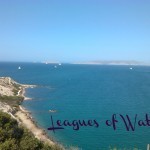
You cannot really tell how immense the sea is when you are looking at it from the beach, you know is huge, is right there in front of you, expanding for miles and you know that when you go to it you cannot just keep on walking inside it since eventually you will find your feet no longer touch the soft sand at the bottom, and despite the fact that you realize on some level all of this by simply looking longingly into this big mass of bluish-greenish water, you don’t catch upon the fact of how far it goes… not until you go above it or simply to a gazebo and from there, you are amazed.
This happened to me, not long ago. I was sharing a nice day with my family at the beach, we love being there, at any beach in any part of world, name it we will be there because we come from a place where the sea runs in our systems, we long for it. But back to the point, it was time for us to go after spending hours bathing at the beach and sleeping under an umbrella with the sound of the ocean right next to us, lulling us into this spectacular relaxed state, I hope you know which one, is a perfect state of mind. We knew there was something up in the mountain, we could see it from the beach, and the entire we were there we were wondering, what is up there? We literally asked ourselves that very question, we could see cars going up and down that hill, little dots moving in the distance. So the time came, we got in our car and decided to go up there, we passed hotels and residential buildings, and still we went up, more and more, until we reached this wonderful place in the mountains, a gazebo to call it by some name, and it was breath-taking to see the sea from that particular spot, to feel the wing in your face, your summer dress lifting up with every current of air or lapping at your legs, we could see the island shaped like a turtle, the fishing ships below us, way below.
And it felt really emotional, motivating and inspiring to be there. It makes you want for more, you realize how little you could be but you are not, even when you are just a chess piece in the whole wide world, you are still an important one; you can hope, wish and accomplish more than what you already have. You can do anything, the sense of freedom you get from this kind of places, being miles up, away from the noises, the city, the cluster of people that are not even seeing what surrounds them while you walk, and who only make you wish to be home just so you are not close to so many soulless humans; when you go to the top of the world or as close to it as you can be, you realize at that moment, how your life dreams can come true.
That was how I discovered or rather how I remembered, that nature is the most beautiful thing in this universe, that untouched and unsullied part of the world. This place is in Venezuela, is the ‘Mirador Turístico Virgen Del Valle’. Many places in my country are amazing and worth seeing, and this is definitely one of those with its spectacular view and even more amazing power to make you feel.
Can you imagine having a house is such a place? And I am not talking simply of this particular spot with its view of leagues of water, I am referring to a place in the middle of nature, a cabin in a forest, a house in a mountain, four walls by a lake, anything like this, a dwelling where you are able to let yourself go and where your mind can be as creative as it can get, I definitely can picture it.
Never give up on your dreams and remember to always chase after them, until you grasp them to never let go.
Thank you for reading and commenting. Please enter the Inspiration Travel Writing competition and tell your story.
The post Leagues of water in Venezuela appeared first on We Said Go Travel.
Salt Water and Fears in the USA
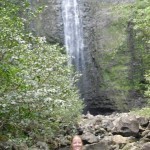
Salt Water and Fears in the USA
Cole and I strolled down the side of the highway with our thumbs pointing out and our backpacks weighing us down. The salty air was caressing my face and the warm wind enveloped me, gently assuring me I was in the right place. The humidity was thick and although I was pouring out sweat, I could not believe I was in Hawaii. He had convinced me not a week earlier to quit my job (without even giving my two weeks’ notice, which was a big deal for this type A girl) and buy a one way ticket to Kauai. We were meeting his girlfriend there and we hopefully had a place to crash for a few days. In that time we needed to find some jobs, somewhere to stay and completely consume ourselves with our new haole lifestyles.
I landed a job within the first week and we had a few leads on some new living digs. In the meantime we were ravaging the island with our eagerness to check out each beach, every waterfall and the bars of course. One afternoon my girlfriend Coral and I set off to go swimming down at a beach we had not been to yet. The waves weren’t too big and we dove straight in relishing in the highs and lows of the ride. We chatted about our day without paying too much attention, when we suddenly realized how far from shore we had gone. We were caught in a minor riptide and had floated a long ways out. I took a deep breath trying not to completely freak myself out, I knew we were both strong swimmers but I was absolutely terrified. We knew we needed to swim sideways to get out of the riptide before heading back towards shore. After ten minutes of constant paddling I finally looked over at Coral and said “I’m really scared”. She agreed with me but also knew that freaking out would be the worst reaction and said “Let’s just keep going, we’re making progress”. We did make it back to shore, we weren’t swept out into the ocean on our way to Alaska and our toes weren’t even nibbled by sharks; but it had been a reality check for both of us. The island had been generous in giving us a gentle reminder that she is in charge and not something to be taken for granted or messed with. We could not simply conquer the island in our ventures, she was allowing us to embrace, explore and enjoy her; but we had to do that with respect.
From that day forward I saw the island with new eyes. I had been granted access to the island that some people would never experience. I had easily landed a job, home, free yoga and friends; the island wanted me there. I went to as many farmers markets as possible so I could drink from fresh coconuts. I paused at work every evening to watch the sunset just as the locals do. I lived the local lifestyle wearing a bathing suit and slippers all day. I tried not to think about tomorrow too much or what the future held, but simply to enjoy the right now. My right now was beautiful and I knew that at some point it would end, but I did not worry about that ending. When six months later I did experience my last night on the island, she gifted me the experience of seeing a green flash. It was rad. Magical. Unforgettable. I got on my plane to the mainland later that night and shed tears as I flew away.
Call me Lady Brave, or The Traveling Woman or simply just a girl doing her girl thing in her twenties, but I had never felt more whole in my entire life. I had never before jumped in to something so deep, so far away without even testing the waters first. And these waters were immense, powerful and literally had the ability to take away your life. But I swam right in and managed to make my way back to the shore. I was whole, I was alive and I was thriving. Kauai will forever be one of the most amazing times of my life, but I am most thankful for what the island taught me. I learned to relax, let go, trust myself and be brave. I am a capable young woman; all it takes is a little bravery.
Thank you for reading and commenting. Please enter the Inspiration Travel Writing competition and tell your story.
The post Salt Water and Fears in the USA appeared first on We Said Go Travel.
March 1, 2015
Ambitious Adventurer in Sierra Leone
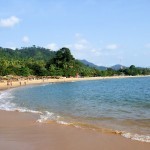
Your contemporary shoe fervently feels the comfort of the bumpy uneven street ground establishing an intimate connection that you hope will
be everlasting. You are stood on top of the ground – a ground reflecting that of it’s people, a ground so sturdy it resembles its state, a ground so mighty it hints its experiences, a ground so grand it is Sierra Leone. As it determinedly makes its way down your trachea to the station of lung expansion the warm, kind air offers you a feeling of contentment, anticipation, and interest. By the time your diaphragm has relaxed and the oxygen has been converted into carbon dioxide – that of which your surrounding palm trees and beguiling flowers will benefit from – you are more than ready to begin your exploration of the persisting west African country.
Remember that the multimillion-dollar Hollywood portrayals are out of sight hence, out of mind. The tales that come from the eager mouths of those who are trapped inside their treacherous comfort zones must not be believed as they will do anything but feed your desire to explore. You are a discoverer.
As your thin fingers tightly grasp the worn out handle of your red and cultured suitcase your mind can only focus on two things. Your occupied mind is trying to concentrate on the life around you as you bravely walk through the crowded streets, your mind is also allowing your spinal chord to send the rapid nerve impulses to your hands as a reminder to not let go of the suitcase, do not let go of the suitcase. Around you there is a human library containing literature of common Sierra Leonean lives, poetry of lovely local music, history textbooks based on the rich past of a former British colony, newspapers updated with the latest stories of the ebola crisis, and a numerous amount of hopeful tour guides who are willing to fulfil your wishes for a humble Le 10,000.
The fear of standing out does not overcome as you realise you are not the only foreigner, you are not the only ‘white woman’. There are others, more of you; more just like you in the province all here for a specific reason. There are those who are here as brave medical experts offering aid to the victims of the disastrous outbreak, there are those who are here voluntarily as part of a non-profit organisation, there are those here on business ready to lead wealthy lives from the findings in the mines, there are many blending in with the environment.
The unfamiliar faces are welcoming, wives and children prepared to bargain suitable prices in order to buy the evening’s supper, young boys avoiding the flock as they kick around a football through the legs of by passers, amputees sat on the side of the road hoping for change before they play their game of football, blaring horns of large four by fours stuck in customary traffic as smiling policemen knock on windows anticipating a bribe. There are countless stories to be heard and you are overwhelmed with what the country has to offer. You suddenly remember do not let go of the suitcase.
The vibrant atmosphere reminds you of the free spirit of a young child, the soul that urbanisation lacks or has perhaps lost in its artificiality and materialism. The peculiar aroma of the marketplace your nose has lead you to as your feet obediently followed, creates a new entry way in your cerebrum. The sultry sun is getting to your sweat glands as they dilate and allow the release of the toxins that were trapped inside your body. Boy, are you in Africa.
Your inner investigator is prepared to get to business; you are not simply an observer. Reaching inside your khaki trouser pocket searching for the Sierra Leonean money you will need to satisfy your thirst you immediately remember that due to your excitement, the experienced traveller you are has made the ridiculous mistake of not converting your worthy British pounds into the local Leones – £500 that will be of no use, unless you find a bank.
Fearfully but calmly you show no sign of unsureness as you make your way through the mass of engaged people. Your attentive eyes meet those of the homeland, your sweaty arms make contact with arms covered in distinct fabric made up of attractive colours and patterns as well as other sweaty arms, your nose inspires the scents of fish, fruit, and flies. You are aware that you are being watched, you know that you are seen as a superior – would you imagine that, you are a superior -, you understand that unless you speak to someone you are a lost wanderer. Finding your way towards a tiny hut where a plump woman is sat you reach out your left hand as the other is busy holding onto your possessions and introduce yourself, Linda Spane, ambitious adventurer.
Thank you for reading and commenting. Please enter the Inspiration Travel Writing competition and tell your story.
The post Ambitious Adventurer in Sierra Leone appeared first on We Said Go Travel.
From Row A on the Red Carpet: @United #FilmFriendly
From Row A on the Red Carpet with United #FilmFriendly Bloggers 2015 the 87th Academy Awards #LosAngeles
Video: From Row A on the Red Carpet
Our day started at 10:30am with check-in at security. We had all had criminal background checks in order to be on the list. Maybelline offered makeovers and manicures during the day. We had People magazines to read and box lunches to eat.
By 2pm we were in our bleacher seats ready to record the long walk down the red carpet (partially in the rain!). I never realized how many people walk the carpet or how many times the stars get asked the same questions over and over again with a giant SMILE! At 6pm, we went to El Capitan to enjoy the 87th Academy Awards on the big screen. A dinner buffet, popcorn and drinks were given to us as we sat in our comfy seats to see who won which OSCAR.
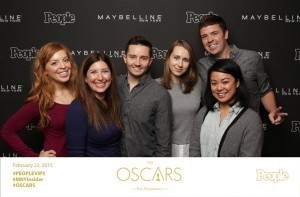 Thank you United Airlines for hand-selecting me as one of your five #OscarBloggers for 2015!
Thank you United Airlines for hand-selecting me as one of your five #OscarBloggers for 2015!
Team #OscarBloggers:
Spencer from Whisky Tango Globetrot
Arnette from Round The World Girl
Monica from Run Eat Repeat
Diana from LA by Diana
and ME! Lisa from We Said Go Travel
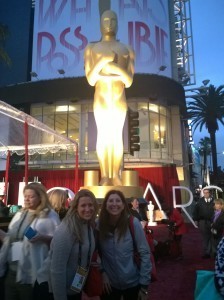 Thanks to
Thanks to
#United
#PeopleVIPs
#MNYInsider
#FilmFriendly
Red Carpet Experience 2015 posts:
from Monica at Run Eat Repeat
from Arnette at RTWGirl
from Spencer Spellman at Whisky Tango Globetrot
from Lisa Niver at We Said Go Travel
The post From Row A on the Red Carpet: @United #FilmFriendly appeared first on We Said Go Travel.
Watching the Waves in Japan
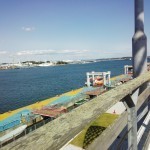
Finding ways to stay positive and productive while living abroad long term can be challenging. Depression abroad is significantly more encompassing than that at home, at least in my experience. In your native environment, the same old triggers are lurking in all the familiar places, but the further from home you get, the more surprisingly lost you can feel.
It’s been six years since I left my hometown, wandering instead through much smaller towns in Japan where I teach English and pretend, sometimes convincingly, that I know what I am talking about.
But not today.
Today I am looking out into the sea, and letting the waves consume my thoughts.
This ritual has become a necessity, though I only do this from time to time and most frequently when I am at odds with my husband or confused by the cultural barriers I see daily. The natives must think me strange, a foreign woman pushing a baby stroller out to the tourist spots and staring mindlessly into the water, but I need it.
For sometimes only in those tumbling waves do I feel at peace. Reminders that I am not smart enough or quick enough or good enough all die out under the chorus of crashing water. I’m left with a brief look into infinity, and I can remember what it is to breathe. The cool constant flow reminds me that my problems, however overwhelming they feel, are nothing compared to the sea. The waves will come no matter how many dishes I wash or meals I make. If I fail, the waves will still come. The world won’t end for any mistake I can make.
But for 30,000 people in 2011, this spot and others like it were the end of the world. The beautiful bay I look out into and take comfort in was home to the tsunami caused by the largest earth quake on record here in the land of the rising sun. A significant part of the population of these little coastal towns was washed out to sea. The lucky ones were able to find and bury their loved ones, but many more were lost to the water.
A tiny voice in the back of my head claims that those people were more entitled to the life I am living than I am. This was their home and they lost their place in it for being in the wrong place at the wrong time. I am just a visitor who didn’t leave. They were citizens. They belonged here.
For half a second, I almost believe it.
Scores of men, women and children– more people that I have ever known– were gone in the blink of an eye, and I cannot explain or understand why I am alive when so many people are not. It wasn’t intelligence or money, class, creed, or anything I can so easily identify. Even if I could, it wouldn’t change anything. They deserved to live. Everyone does. Even me.
Continual motion conveys force from one medium to another. Waves crest and fall. People are born and die. Choices and mistakes are made. Accidents happen. Watching the water, I feel that twinge of survivor’s guilt perish the way my thoughts in this place often do, replaced by the sound of the ocean and the knowledge that some things are not mine to control. The best thing I can do is keep my head up and keep moving forward, helping who I can when I can.
Years have passed and some scars have healed. Many people are still homeless, unemployed, or otherwise disadvantaged. Others are getting lives and businesses back on track.
We are surviving.
And watching the waves.
Thank you for reading and commenting. Please enter the Inspiration Travel Writing competition and tell your story.
The post Watching the Waves in Japan appeared first on We Said Go Travel.
We Said Go Travel
We Said Go Travel is a global community of over sixteen hundred writers with articles from every continent.
Stories are shared with photos and video from a perspective of the transformative power of travel. We Said Go Travel has hosted live and online events as well as travel writing contests around the world. ...more
- Lisa Niver's profile
- 57 followers



